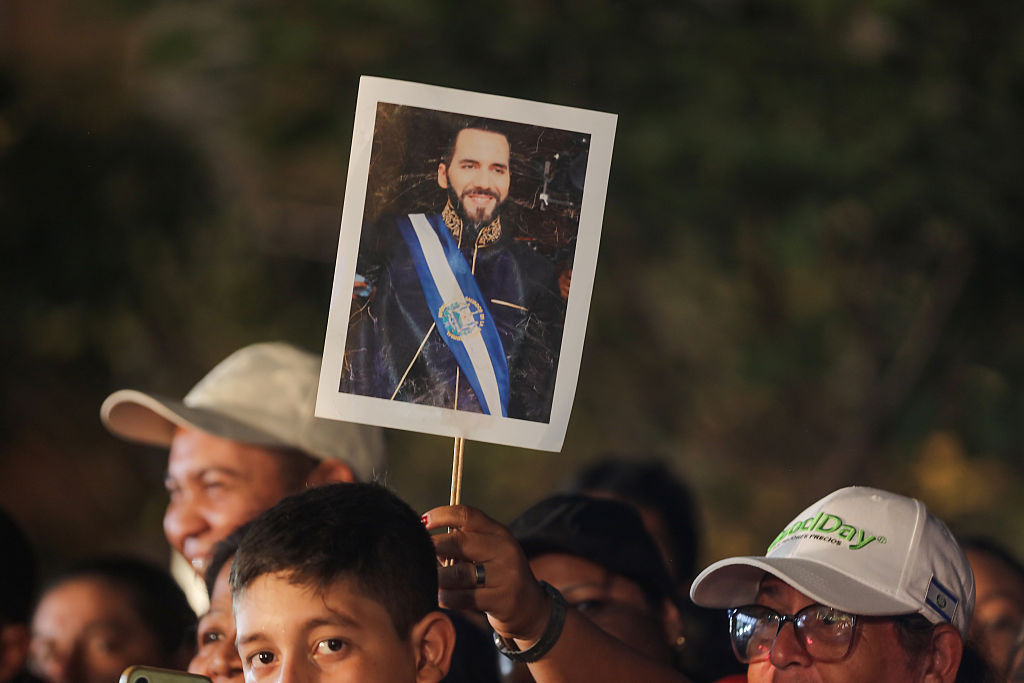Last week, lawmakers in El Salvador’s Legislative Assembly approved constitutional changes that allow indefinite presidential reelection and extend the presidential mandate to six years. These changes will further entrench President Nayib Bukele in power. Salvadorans, however, seem far from opposed. Bukele has maintained an approval rating of over 80% since taking office in 2019, largely attributed to the reduction of gang violence.
El Salvador is just another example of how voters are increasingly rewarding leaders who trade institutional safeguards for swift results. The trend is global: Hungary’s judicial capture, India’s sidelining of opposition leaders, and Turkey’s post-coup purges all drew majority support, revealing a crisis of faith in liberal democracy.
In his 2018 book The People vs. Democracy, political scientist Yascha Mounk diagnosed the problem as the slow but steady decoupling of liberalism and democracy. His key insight was that liberalism (defined by individual rights and a system of checks and balances) and democracy (rooted in majority rule) are now at war. The separation of two ideas once seen as mutually reinforcing is a defining challenge of our time.
The threat isn’t just an academic theory. As the world digests a second Trump presidency and many Latin American countries grapple with democratic backsliding, party decay, and populist revival, Mounk’s idea becomes ever more pressing. Illiberal democracies use elections to dismantle checks and balances, while technocratic liberalism rules without popular consent. Both erode trust, as Argentine economist Eduardo Levy Yeyati says: “the first by silencing dissent, the second by neglecting it.”
Familiar echoes, new variants
Latin America’s illiberalism is not about ideology, it’s about survival. When democracies fail to stop gang violence or corruption, voters see basic rights as luxuries—as in El Salvador—and institutions become liabilities at best, complicit at worst. Even Chile, long considered a model for gradual democratic reform, rejected first a progressive constitution and then a conservative one, with analysts attributing the backlash to elite overreach.
In countries such as Peru and Guatemala, political fragmentation has enabled what Paolo Sosa-Villagarcia and Moisés Arce call “legislative authoritarianism,” where the legislature, rather than the executive, governs through elite negotiations and state capture instead of the will of the people. These regimes keep a liberal façade; executive overreach does not materialize, but democratic legitimacy suffers nonetheless.
On the other hand, ambitious reformist leaders have embraced populist tactics by using popular legitimacy to override institutional checks. Mexico’s overhaul of the judiciary, for example, was controversial for threatening to reduce judicial independence, yet was framed as democratizing. While rhetorically progressive, these moves risk hollowing out liberal safeguards in the name of democratic urgency.
These patterns highlight the region’s perennial struggle to align liberal governance with democratic legitimacy. Democracies that have proven resilient enough to withstand crises, such as Argentina and Brazil, have done so through institutional guardrails that safeguard electoral processes and restore political balance. These guardrails, especially during periods of polarization, are crucial. They demonstrate that institutional resilience, while fragile, is not futile.
Why voters keep choosing illiberal democrats
Voters support illiberal leaders for four reasons. First, they choose results over rights. When liberal democracy fails to deliver, voters punish incumbents and favor solutions that work, regardless of the costs. Second, people tend to prefer simplified narratives. Populists name concrete enemies rather than abstract causes and promise clear-cut solutions rather than tradeoffs. Third, the gap between the people and the elites has grown wider. Some liberal elites have developed a moralist attitude that the average voter sees as condescending or threatening. Fourth, cultural backlash has kicked in. Elite self-righteousness has been accompanied by the imposition of progressive values that common people see as alien to tradition.
This is not a uniquely American or Latin American story. It is global. And unless liberal democracies become more empathetic and responsive, that is, less oligarchic, illiberal candidates will continue to win elections sometimes by landslides. As Mounk warns, when people feel that their votes don’t matter, they’re more likely to support leaders who promise to blow up the system. This makes rebuilding democratic legitimacy not just a moral imperative but a strategic necessity.
A democratic reblancing
To survive, liberal democracy must deliver, not just preach. Latin America’s lessons seem clear: Costa Rica’s stability rests on anti-corruption courts that work; Uruguay’s digital tools and popularly-activated referenda let citizens shape policy, not just protest it. Even more critically, the elites of both countries—such as the emblematic José “Pepe” Mujica—share the lifestyle of the masses. Empathy and proximity are not demagogic concepts; they are trust builders.
Latin America’s reforms must address both material and symbolic needs, combining justice with economic recovery, instead of legalistic compromises. When democracy becomes a province of the elites, it defeats its primordial nature: a government of the people. And when it becomes a ritual of elections without delivery, it defeats its ultimate purpose: a government for the people.
Rights and results are not opposites; they are prerequisites. Without them, voters will keep choosing caudillos who promise safety over safeguards and who swap checks and balances for “strongman efficiency.” The lesson is clear: Democracy without liberalism is dangerous, but liberalism without democracy is unsustainable.
To preserve both, we must rebuild the bridge that once held them together: trust, with voters at the center. The required balance is not just institutional; it’s symbolic and material. Citizens must believe both in their individual rights and in their collective power to shape governance.
In turn, leaders must serve citizens by improving their living conditions, both through shared prosperity and social dignity. Respect is the first mandate of community and the legitimizing condition of authority. The second mandate is bread-and-butter. Liberalism must prove it can reduce crime and corruption and reignite economic growth, not just protect procedures. Otherwise, voters will keep trading rights for results, and humankind’s experiment with democracy will continue to hang in the balance.






